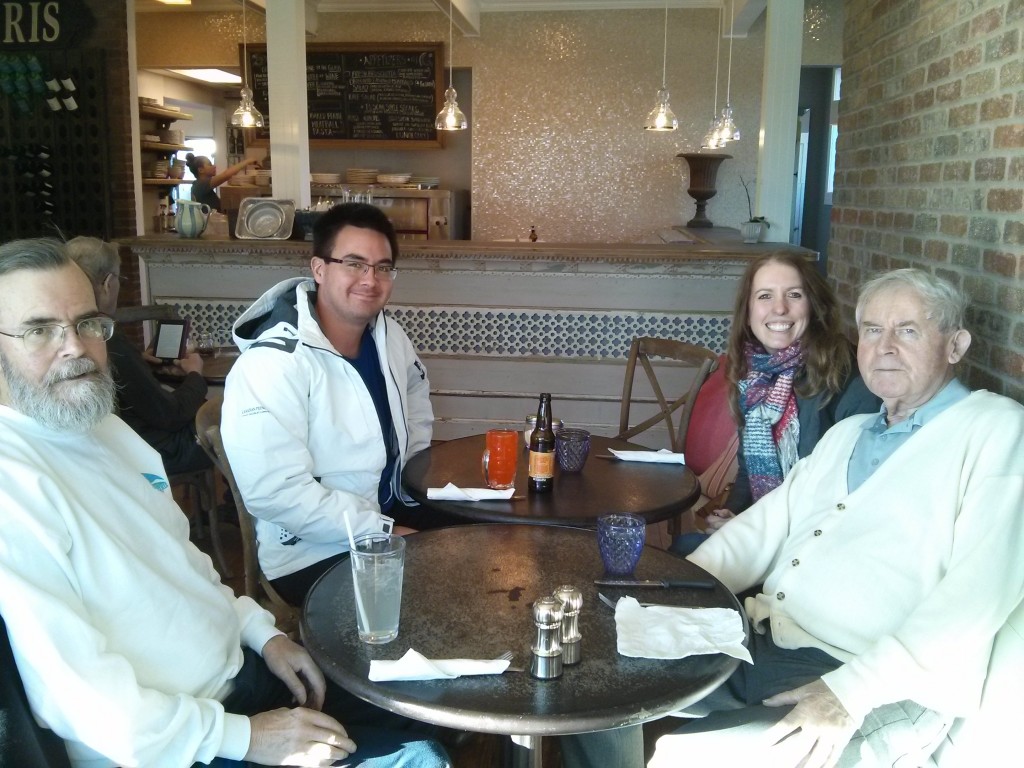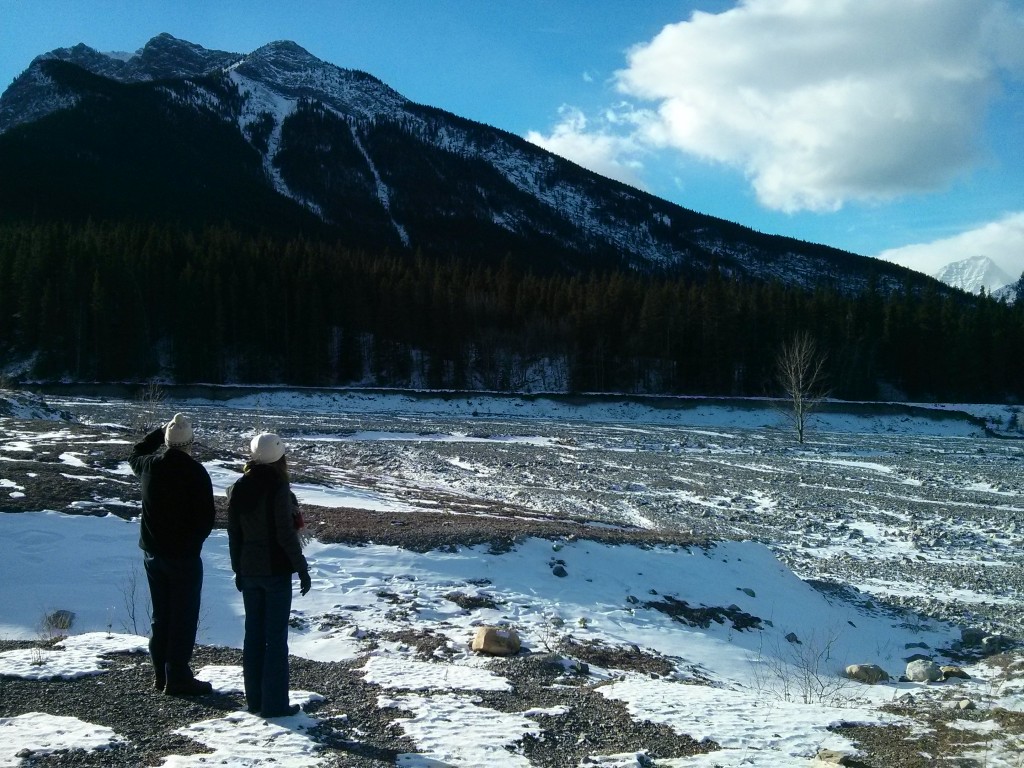

Lunch time in Cochrane before our flight back to Vancouver. From left – Mike Church (UBC), Marc Tadaki (PhD student, UBC), Yvonne Martin (U Calgary, UBC alumna), Olav Slaymaker (UBC).
From the 10th to the 12th of November three UBC geographers ventured to Kananaskis, AB, to join Yvonne Martin (U Calgary) to discuss the meaning, value, and future of physical geography.
Earlier this year, Yvonne Martin, Olav Slaymaker, and I (Marc Tadaki) co-organized special sessions at the Canadian Association of Geographers annual meeting held in Vancouver, on ‘Changing priorities in physical geography’. The sessions and discussions were generative and quite animated, and this encouraged us to pursue a special issue of the Canadian Geographer on these themes.
We are currently confirming contributions for the special issue, and the purpose of meeting in Kananaskis was to explore key drivers of change in the nature and practice of physical geography. We invited Mike Church to join us in Kananaskis, to engage and debate with us about these big ideas, and enrich our collective thinking about the project.
We spent two days at Kananaskis, in conversations ranging from the academic desktop-and-blackboard variety at the University of Calgary’s fantastic Biogeoscience Institute field station at Barrier Lake, through to fireside conversations at the Delta Lodge, and riverside musings along the way. We brainstormed, we reflected, we consolidated, we critiqued, and we debated. Does physical geography ‘exist’ as a coherent entity, and does anybody care about making sure it continues to do so? Where are the theoretical and methodological frontiers in geoscience? How is big data and automated-instrumentation shaping what we value in terms of research skills (or philosophical reflexivity)? How might scientists engage with the ‘human element’ more substantively and directly in their work? Should we pursue interdisciplinary environmental science without directly including human elements, and if so, how? What are we training physical geographers to do, and do any of them care about Geography?
So, what came out of our discussions? Well, in terms of specifics, you’ll just have to wait for our special issue and see for yourself! But seriously, what came out of it for me was inspiration and energy. I emerged inspired because of how Olav, Mike and Yvonne – all eminent practising geoscientists – found so much value from their geographical training. Despite our diverse backgrounds and specializations we were able to engage in deep ethical and scientific reflection about where physical geography (as a dissolving discipline) and geo/environmental science are going, what is causing these changes, why this matters, and what strategies and tactics we might pursue to alter these trajectories.
By PhD Candidate, Marc Tadaki
Photos provided by Marc Tadaki



